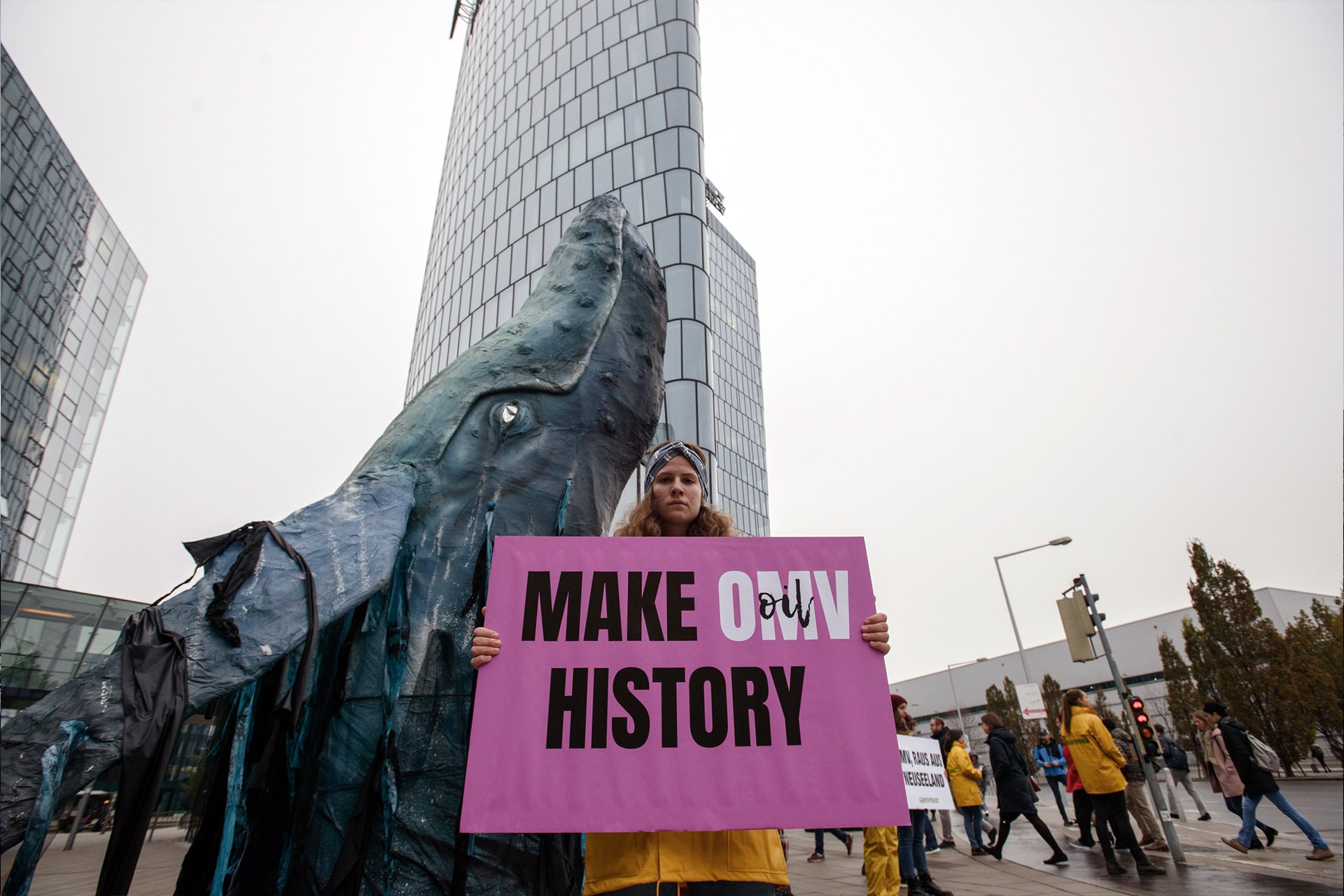Fotocredit Titelbild: David Visnjic / Greenpeace
As an investment, OMV will become increasingly unattractive without a long-term plan to decarbonise their portfolio and exit oil and gas. This is because the fossil energy industry is undergoing a fundamental structural change and hardly a stone will be left unturned. What can already be seen in the coal sector may soon become reality in the oil industry as well. For example, the world's largest U.S. coal producer, Peabody Energy, slid into bankruptcy in April 2016 in the wake of the sudden drop in coal prices. The crash came quickly: in 2014, Peabody had still been named "Energy Company of the Year" by the industry magazine "Platts." This clearly shows that sticking to a model that relies on rising demand in the face of a dwindling supply of raw materials to achieve higher prices is turning into a crash course. In fact, demand has stagnated, while oversupply has caused prices to plummet. And a recovery in the coal sector is no longer an option in view of the Paris climate agreement.
The oil and gas market is also currently in crisis. Massive revenue losses, high write-offs, austerity programs and layoffs (also as a result of stranded investments, i.e. unprofitable investments), have been the order of the day since the outbreak of the Corona crisis in March 2020. This also affects OMV, which wrote off 600 million euros worth of assets in 2020.
But there are also winners of the crisis, innovative companies that have initiated a real change in time. For example, the Danish company Orsted - it had already announced its exit from the oil sector several years ago and instead invested massively in wind energy. This strategy proved to be profitable, especially during the Corona crisis, and made it possible for the previously completely unknown energy supplier Orsted to achieve a larger market capitalization than BP in October 2020. In December 2020, Orsted gained almost 6 times the value of OMV.

